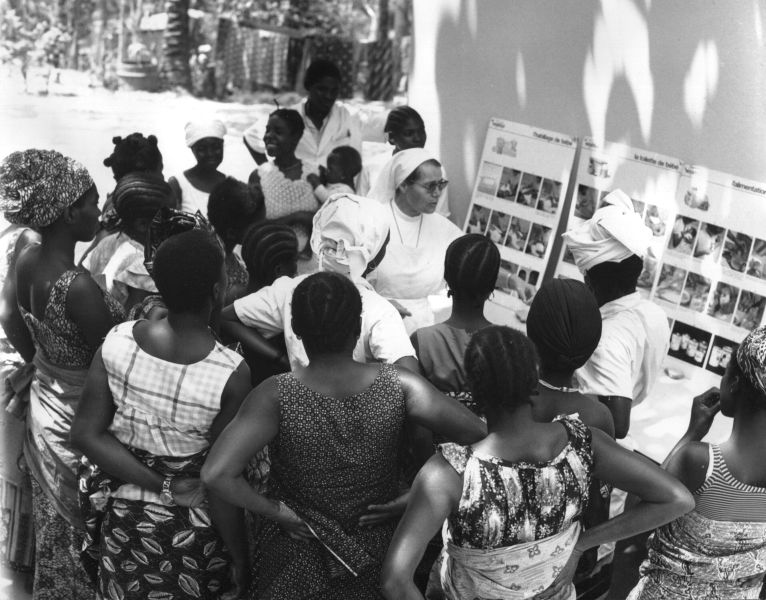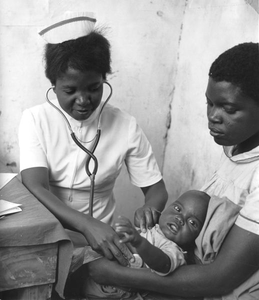White Sisters, nursing practices and reproductive health in East-Africa
What was the role of missionary nurses in sub-Saharan Africa’s colonial and postcolonial past? How did nursing practices develop and how did they affect the health of mothers and children?
With a grant from the Nurse Vernède Foundation (Stichting Zuster Vernède), Aletta Jacobs Professor of Economic and Social History Hilde Bras will study the impact of missionary nurses in East-Africa in a project titled "White Sisters, nursing practices and reproductive health in East-Africa, 1890-present."

The project attempts to answer these questions by means of a case study of the Missionary Sisters of Our Lady in Africa (nicknamed the "White Sisters" for the color of their habit) in East Africa (1890-present). The project investigates the changing discourses and practices of missionary nursing and its impact on the development of nursing in the Netherlands and locally from a critical intersectional perspective. Its focus is on underlying gender, racial, and cultural tensions between nurses and doctors, nurses and patients, and colonial and indigenous nurses.
Archival sources and oral history

Archival material, letters, diaries, photographs, mission magazines, and oral history are used. In addition, the project investigates the relationship between nursing practices and reproductive health, using maternity and patient registers from four hospitals in Uganda, Tanzania, and Malawi. The project combines theoretical perspectives from different historical sub-disciplines (entangled history, history of nursing, medical history, and historical demography) and uses an innovative 'mixed method' approach.
Together with a recently recruited PhD student from the University of Ibadan, Nigeria, Hilde Bras will use this grant to do two weeks of research in the archives of the White Sisters in Rome as well as two months of fieldwork in/around the hospitals in East Africa, including oral history interviews with the local population and the collection of maternity and patient records in the hospital archives.
Stichting Zuster Vernède
The Nurse Vernède Foundation provides grants for activities and projects that focus on the history of nursing and care in the Netherlands. Much of that history is still unknown. Read more on the foundation's website (Dutch).
| Last modified: | 16 December 2021 10.00 a.m. |
More news
-
16 April 2024
University of Groningen signs Barcelona Declaration on Open Research Information
In a significant stride toward advancing responsible research assessment and open science, the University of Groningen has officially signed the Barcelona Declaration on Open Research Information.
-
02 April 2024
Flying on wood dust
Every two weeks, UG Makers puts the spotlight on a researcher who has created something tangible, ranging from homemade measuring equipment for academic research to small or larger products that can change our daily lives. That is how UG...
-
18 March 2024
VentureLab North helps researchers to develop succesful startups
It has happened to many researchers. While working, you suddenly ask yourself: would this not be incredibly useful for people outside of my own research discipline? There are many ways to share the results of your research. For example, think of a...
